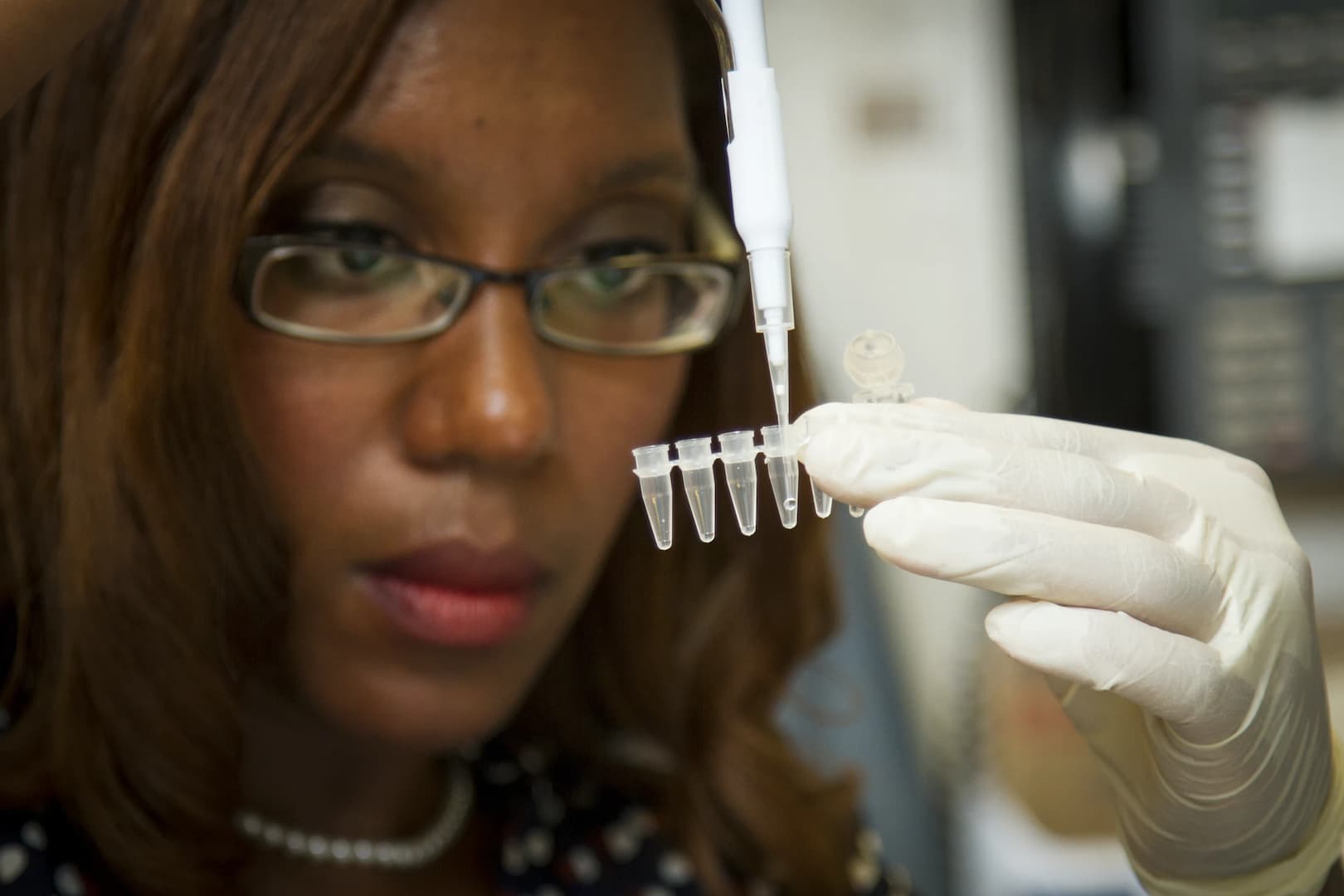What is DNA Testing?
DNA stands for deoxyribonucleic acid, a genetic code that is passed from parent to child. DNA testing reveals to a person what's contained in this code, including the genetic conditions that run in their family and their risk of developing any of these before the symptoms even start to manifest.
Undergoing a DNA test will also help expectant parents know the likelihood of their child inheriting a genetic condition. They can use the information they gather to work out an effective treatment plan with their doctor.
A genetic test is performed by collecting a sample of blood, hair, skin or body tissue from the patient. A cotton swab is often used to carry out the procedure, but a vial may suffice for body fluids like saliva. After analysing the DNA sequence in the sample specimen, the laboratory analyst sends a report of the test results to the patient's primary care provider.

How Does DNA Testing Work?
DNA testing companies offer different types of services to help everybody find the answers to their questions. Knowing what health conditions they are at risk of developing will help them be more mindful of their diet and lifestyle and make informed decisions as to the types of health screenings to undergo to keep their health in check.
Here below are some of the most common types of genetic testing procedures that can assist people in taking proactive steps to improve their physical, mental and emotional health:
Diagnostic testing is recommended to people whose condition is suspected to be hereditary. The result of the test allows the patient and their doctor to work out a personalised treatment plan to manage the condition.
Carrier testing is often advised to couples who have a family history of a genetic disorder and may be potential carriers of the gene that is responsible for the disease. If the gene is found in both parents, then their child risks having the genetic condition.
Presymptomatic and predictive testing is another type of genetic test that can tell a person if they are at risk of developing a condition that runs in their family before they show symptoms of the disease.
Preimplantation testing is a type of DNA test used for screening embryos produced through in vitro fertilization for genetic disorders. The cells of the embryos are tested for genetic changes that may cause a disease. Embryos that don't have the disease are implanted in the mother's uterus.
Prenatal testing is a type of test that can detect any gene mutations in the fetus that can possibly lead to a genetic disorder. This type of genetic test can be performed on the mother's blood or through amniocentesis, an invasive procedure whereby a small amount of amniotic fluid is taken from the sac protecting the baby in the mother's uterus.
Newborn screening is performed immediately after birth to determine if the baby has genetic abnormalities that must be treated right away. Infants are tested for sickle cell disease, congenital hypothyroidism and phenylketonuria, among other genetic disorders.
Pharmacogenetics determines how a person's body responds to medications based on their genetic makeup. This type of genetic test helps people figure out what types of medications are suitable for them.
What are the Benefits of DNA Testing?
DNA testing reveals a person's genetic makeup and empowers them to take proactive steps to improve their physical, mental and emotional health. This process is also beneficial to health practitioners as they can use the test results to provide or recommend an evidence-based treatment plan to help their clients achieve optimal health. DNA testing is a great way to prevent a host of hereditary diseases, including:
- Diabetes
- High blood pressure
- Heart disease
- Cystic fibrosis
- Arthritis
- Cancer
- Asthma
- Huntington's disease
- Sickle cell anaemia
- Turner syndrome
- Hemophilia
- Neurofibromatosis I
- Kidney disease
What Can You Expect From DNA Testing?
DNA testing is a quick procedure that only takes a few minutes, but prenatal tests can take anywhere from 30 minutes to an hour and a half. The turnaround time for the results can take a day to a month, depending on the type of test that you requested for. A genetic test is usually performed by a licensed medical practitioner like a doctor or nurse.
Before undergoing a DNA test, the practitioner or DNA test provider will explain the testing procedure and obtain your permission to carry out the test. You will be asked to fill out and sign a form that clearly stipulates that you agree to undergo the test. Although some of the tests are invasive, these pose very minimal side effects like localised pain or bruising.
If you're submitting a blood sample, wear something with short sleeves. On the other hand, if you're going to undergo an invasive prenatal test, you can wear something that's easy to take off because you may be asked to undress partially.
Once you have received the result of your test, you can discuss this with your doctor to find out which treatment plan works best for you or reduce your chances of acquiring the condition that is present in your genes.




